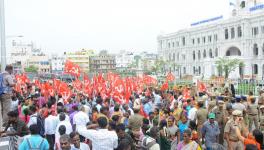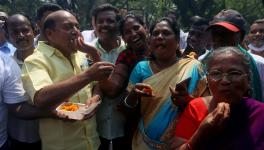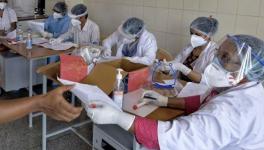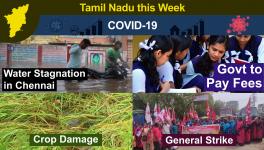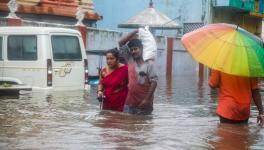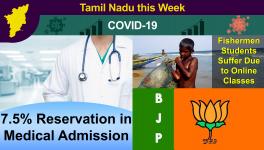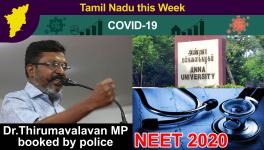Tamil Nadu on High Alert After Increase in Dengue Cases
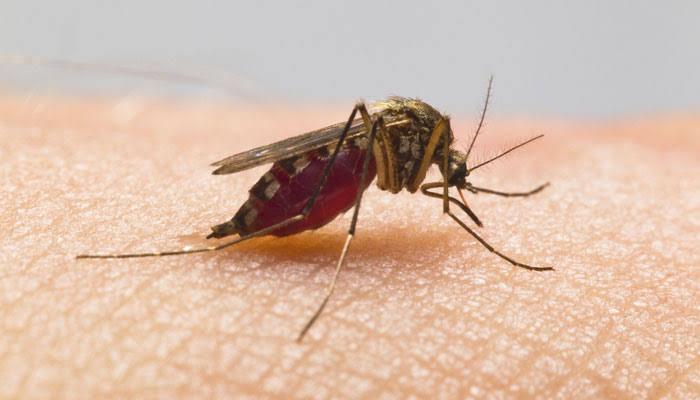
Image Courtesy: Zee News
Chennai: The threat of dengue outbreak has gripped the state, with Chennai, Kancheepuram and Tiruvallur recording a high number of cases. The official data claims to have recorded around 3,000 cases of dengue this year, out of which 2,000 has been reported in the past two months alone. Five deaths have been officially reported including an 11-month old infant succumbing to the fever last week.
The government and the health minister, however, claim to have controlled the outbreak in spite of the reported deaths. With the Northeast monsoon expected to set in on October 17, the impact of dengue is expected to increase.
The Institute of Child Health and Hospital for Children located in Egmore has witnessed a huge increase in children with dengue-like symptoms. The number of patients visiting the hospital with such symptoms has increased to about 150 to 200 per day. Chennai hospitals have confirmed a total of 50 confirmed dengue cases so far. The Government Rajaji Medical College Hospital, Madurai, too, has opened a special ward for patients with symptoms of dengue fever.
The local administration has been put on high alert to prevent the breeding of aedes, the mosquito considered to be the cause of dengue fever.
CHENNAI CORPORATION RECORDS RISE IN CASES
The greater Chennai Corporation has recorded a 9% increase in confirmed dengue cases compared with last year. The deputy director of state health department, Dr Madhusoothanan, while addressing the media accepted said the corporation had 90 confirmed dengue cases, while during September 2018 the confirmed cases were 80.
Amid all this, state health minister Vijaya Bhaskar said in a meeting that the prevention of dengue’s spread was the duty of the local administration department, and the health department’s responsibility lay in only treating the affected persons. The minister’s comment exposed the lack of coordination between the departments and received widespread criticism.
LACK OF STAFF
In this backdrop, the lack of appointment of doctors and other staff in medical colleges, hospital and primary health centres (PHC) is compounding the problems for the public, according to Federation of Government Doctors Association (FODGA).
Dr Antan Uresh Kumar of FODGA told Newsclick: “The number of government doctors has remained at 18,000 from 2004, which is highly insufficient for catering to the population of the state. The state government should consider appointing enough doctors and support staff to effectively treat patients who depend on government hospitals.”
The patients of the government medical college, a vast majority being from economically backward classes, are worst affected due to insufficient doctors and staff. The reduction in number of staff, as per the restructuring counselling guidelines of the medical council, has also added to the woes of the public along with increasing the workload of existing doctors.
DOCTORS FACE WORK OVERLOAD
The workload of doctors and support staff has increased manifold over the years. The number of orthopaedic doctors in Kilpauk Government Medical College has come down to five from 10 before the restricting counselling guidelines were executed. The counselling is done as per the number of inpatients and outpatients, but effectively reduces the staff strength and increases stress among the existing staff.
“In addition, the number of students admitted to medical colleges has increased from 1,200 in 2004 to 4,500 in the present academic year. The number of students has increased almost four-fold but number of doctors remains the same. This increases the workload on doctors who are teaching and treating in the medical colleges, resulting in severe stress. The life span of government doctors is also reducing due to stress”, added Antan.
STATE DROPS IN HEALTH INDEX RANKINGS
The shortage of manpower in government hospitals, including the primary health centres, has attributed to the lack of effective treatment to the people, especially the poor, resulting in the state dropping six places to ninth position in the recent list released by the NITI Aayog, a government think-tank. The Aayog categorised Tamil Nadu as ‘Not Improved’ compared with the rating of ‘front runner’ in the previous year’s health ratings.
The state has registered deterioration in full immunisation coverage, case notification of TB, 24/7 functionality of PHCs and proportion of medical officer position in PHCs along with most deteriorated indices including proportion of low birth weight children among new-borns, completeness of integrated disease surveillance programme reporting and proportion of community and primary health centres with quality accreditation certificates.
However, Tamil Nadu has performed well in other indices, such as neonatal mortality rate, sex ratio at birth, functional cardiac care units per district, specialist position in district hospital among others.
The state government has allocated Rs 12,398 crore compared with the actual spending of Rs 12,366 crore in 2018-19. This marginal increase is highly insufficient and is set to further weaken the public health system.
PROTECT PUBLIC HEALTH SYSTEM
Meanwhile, the FODGA has announced an indefinite strike from October 25 demanding the implementation of GO 354 for pay fixation on par with central government doctors and dynamic assured career progression. The earlier strike was withdrawn on August 27 after the state health minister promised to fulfil the demands within six weeks. The demands are essentially aimed at preventing the doctors from undertaking private practice and concentrate more on patients in government hospitals, the FOGDA office-bearers said.
“The government should come forward to strengthen the public health system by protecting the interests of government doctors. The pay revision would cost around Rs 300 crore, which is not huge. The allocation of more funds for healthcare will encourage the doctors concentrate more on their primary duty. The government should not move away from a crucial sector, like public health, leaving the doors open for the corporates”, said Antan.
Get the latest reports & analysis with people's perspective on Protests, movements & deep analytical videos, discussions of the current affairs in your Telegram app. Subscribe to NewsClick's Telegram channel & get Real-Time updates on stories, as they get published on our website.









